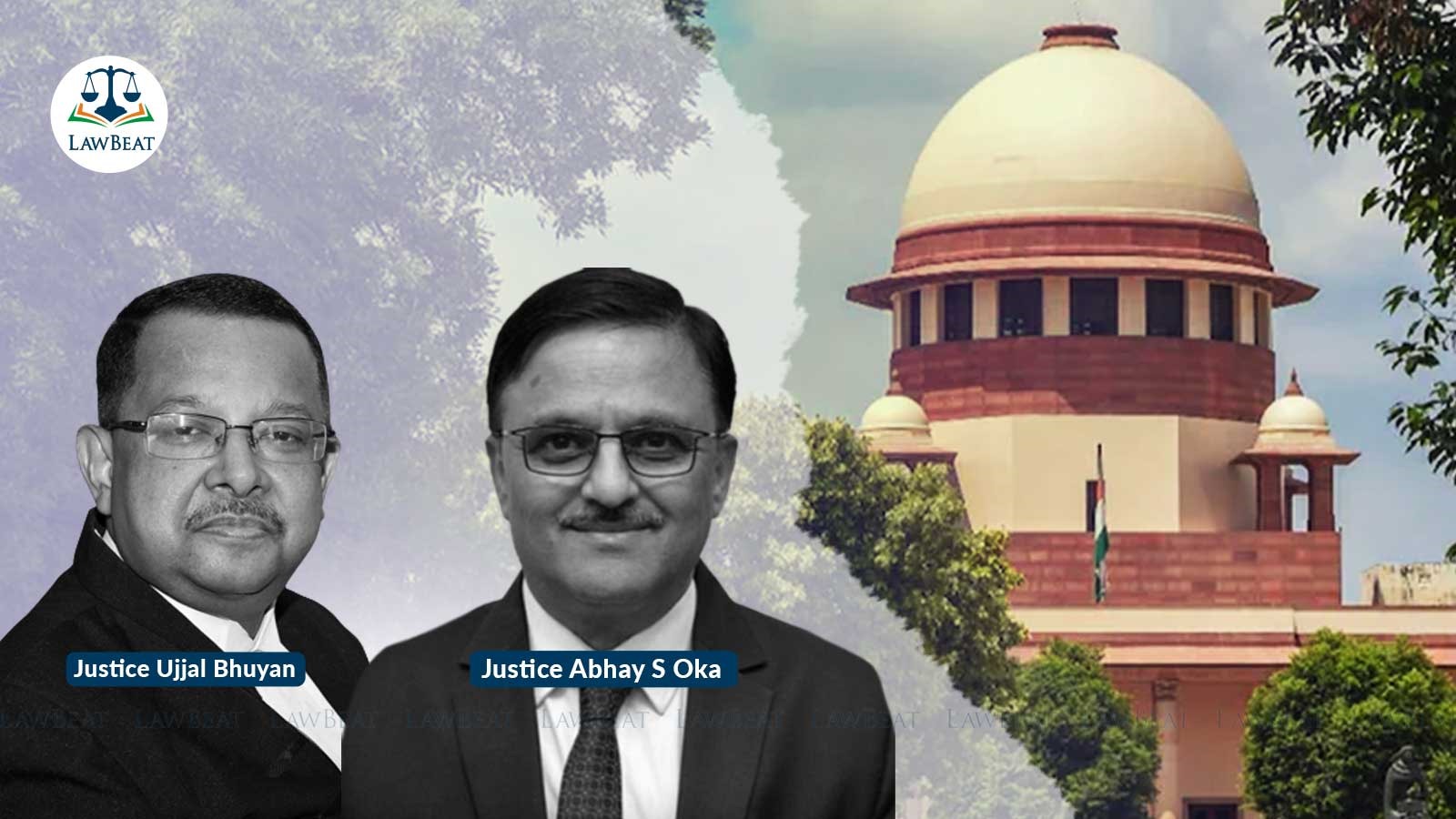'Absolutely no evidence': SC upholds acquittal of Wing Commander in case of death of signalman in 1998

Court said there was no evidence to show that any act was done by the respondent with the intention of causing death or with the intention of causing such bodily injury to the deceased as was likely to cause death
The Supreme Court on November 6, 2024 upheld an order by the Armed Forces Tribunal which set aside the conviction of an Air Force officer for culpable homicide not amounting to murder and others in case of death of a signalman in 1998.
A bench of Justices Abhay S Oka and Ujjal Bhuyan said that there was no act shown to have been committed by the respondent Wing Commander M S Mander that had any direct connection with the cause of death of the deceased.
"After considering the evidence of all the relevant prosecution witnesses, we find that there is absolutely no evidence of the respondent or any other accused assaulting the deceased. There is no evidence to show that any act was done by the respondent with the intention of causing death or with the intention of causing such bodily injury to the deceased as is likely to cause death," the bench said.
The respondent, along with four other officers of the Air Force, was tried by a General Court Martial for various offences, including under Section 302, read with Section 149 of the IPC and of offences punishable under Sections 325 and 342, read with Section 149 of IPC, besides charge of indulging in unbecoming conduct and committing acts prejudicial to good order.
The GCM found the respondent and co-accused guilty of the offence under Section 304 Part II, read with 149 of IPC. Even the charge for the offence under Section 342 of IPC and charges under Sections 45 and 65 of the AFA Act were held as proved. The GCM sentenced the respondent to undergo rigorous imprisonment for five years and to be cashiered.
The Chief of the Air Staff confirmed the conviction. He remitted the sentence of five years to imprisonment for two years in civil prison, but he confirmed the sentence of cashiering. As regards the co-accused, he remitted the entire sentence of imprisonment and cashiering. However, past service for two years was forfeited for the purpose of promotion and the enhancement of pay and pension. They were reprimanded.
The respondent challenged his conviction and sentence, and the Armed Forces Tribunal set aside the conviction in 2010 and granted consequential relief except back wages.
The case related to death signalman UD Garje on March 7, 1998.
It was alleged that on March 3, 1998, the deceased was sent to repair the telephone at the residence of Flight Lieutenant S Verma where the deceased misbehaved with the officer's wife. The officer reported the incident to the respondent, who, in turn, informed the incident to the station commander. During the inquiry, when the deceased was being taken to the Guards' room for confinement, the deceased jumped out of the vehicle and started running and fell into a ditch. He suffered wounds and was taken to a hospital, where he died the next date.
After hearing the counsel for the Union government and the respondent, the bench noted there was no allegation made by the prosecution that while sitting in the gypsy or before that, any assault was made on the deceased either by the respondent or by any other accused. The injuries found on the person of the deceased cannot be attributed to the respondent, it opined.
In the case, the bench said, "We are dealing with an appeal against an order of acquittal. It is well-settled that an order of acquittal further enhances the presumption of innocence. It is equally well-settled that an order of acquittal cannot be interfered with only on the ground that another view can be taken based on the evidence on record".
After having carefully perused the oral evidence, the bench found that the findings recorded by the Tribunal were plausible findings which could have been reasonably recorded based on the evidence on record.
"Even assuming that another view could be taken based on the same evidence, that is no ground for interfering with the order of acquittal especially when we find a threadbare consideration of the evidence on record by the Tribunal," the bench said.
The court further said as the allegations of commission of offences under the IPC were not established, the respondent could not be punished for the crimes under Sections 71,45 and 65 of the Air Force Act.
The bench found no error in the view taken by the Tribunal and and dismissed the appeal.
Case Title: Union of India & Ors Vs Wing Commander M S Mander
